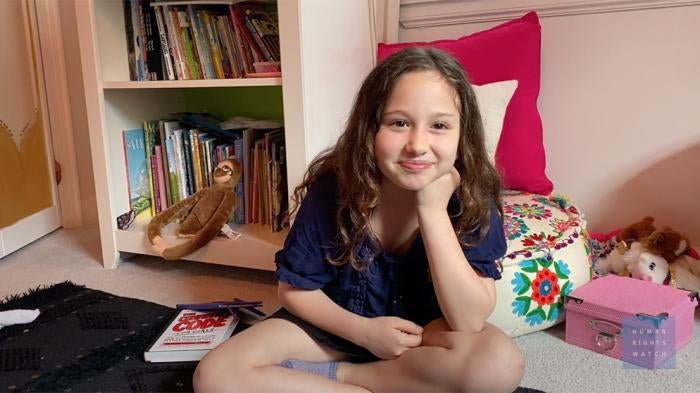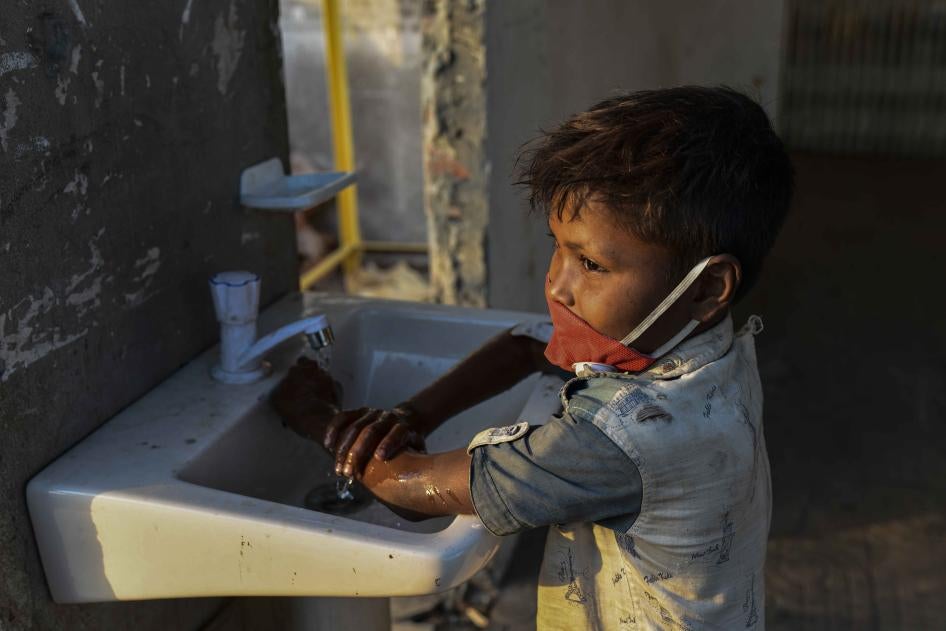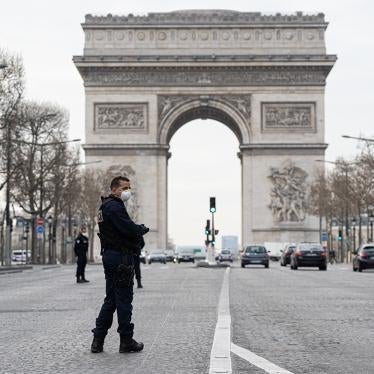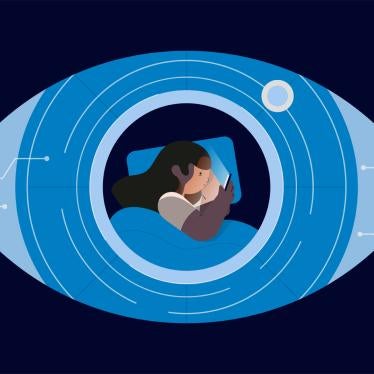(New York) – The COVID-19 crisis has a potentially far-reaching, long-term negative impact on children around the world, Human Rights Watch said in a report released today. The impact is likely to be devastating, even though children who contract COVID-19 appear to have less severe symptoms and lower mortality rates than other age groups.
More than 1.5 billion students are out of school. Widespread job and income loss and economic insecurity among families are likely to increase rates of child labor, sexual exploitation, teenage pregnancy, and child marriage. Stresses on families, particularly those living under quarantines and lockdowns, are increasing the incidence of domestic violence. As the global death toll from COVID-19 increases, large numbers of children will be orphaned and vulnerable to exploitation and abuse.
“The risks posed by the COVID-19 crisis to children are enormous,” said Jo Becker, children’s rights advocacy director at Human Rights Watch. “Governments need to act urgently to protect children during the pandemic, but also to consider how their decisions now will best uphold children’s rights after the crisis ends.”
For many children, the COVID-19 crisis will mean limited or no education, or falling further behind their peers. More than 91 percent of the world’s students are out of school, due to school closures in at least 188 countries. The crisis has exposed vast disparities in countries’ emergency preparedness, internet access for children, and availability of learning materials. Although much focus has turned to online learning platforms, many public schools are not set up to use them or do not have the technology and equipment to provide online teaching. Nearly half of the world has no internet access.
Added family stresses related to the COVID-19 crisis – including job loss, isolation, excessive confinement, and anxieties over health and finances – heighten the risk of violence in the home, including both between partners and by caregivers against children. The United Nations secretary-general has reported a “horrifying” global surge in domestic-based violence linked to COVID-19, and calls to helplines in some countries have reportedly doubled. Child abuse is less likely to be detected during the COVID-19 crisis, as child protection agencies have reduced monitoring to avoid spreading the virus, and teachers are less able to detect signs of ill treatment with schools closed.
Experts estimate that the global total of COVID-19 deaths could eventually reach 10 to 40 million, which will inevitably leave many children without one or both parents or other caregivers. Orphaned children are particularly vulnerable to trafficking and other exploitation, including sexual exploitation, forced begging, selling goods on the streets, and other child labor. Older children often drop out of school to try to support younger siblings.
The global economic downturn caused by the COVID-19 crisis, including massive global job losses, is likely to increase rates of child labor and child marriage. Globally, an estimated 152 million children were already engaged in child labor before the COVID-19 pandemic, with 73 million engaged in hazardous work. Research has shown that child labor is highly associated with financial shocks experienced by a family, such as illness, disability, or a parent’s loss of employment.
The COVID-19 crisis also heightens the risk of online child sexual exploitation. Europol has reported that law enforcement partners are reporting “increased online activity by those seeking child abuse material,” as a result of COVID-19. Children are spending more time online due to school shutdowns, and may be anxious or lonely because of isolation and confinement, making them more vulnerable to online predators.
Millions of children are detained in the justice system, immigration detention, or confined in orphanages and other institutions. In many such facilities, children are held in close proximity to other children, with limited access to water and sanitation, which can facilitate the spread of infectious diseases, such as COVID-19. Access to basic medical services is also often poor or lacking in these settings, putting children’s health at greater risk if they fall ill.
Similarly, millions of refugee, migrant, or internally displaced children live in overcrowded camps, informal reception centers, or squatter settlements, where basic COVID-19 prevention measures such as frequent handwashing and “social distancing” are nearly impossible.
As the COVID-19 pandemic overwhelms health systems, children may no longer receive immunizations or have access to life-saving basic health care. Reduced access to treatment during the 2014-2015 Ebola outbreak in West Africa led to dramatic increases in deaths from malaria, HIV/AIDS, and tuberculosis, including among children.
Human Rights Watch urges governments to take urgent measures to protect children’s rights, including by:
- Prioritizing efforts to continue education for all children, using all available technology;
- Providing economic assistance, including cash transfers, to low-income families that will be hit first and hardest, to help them meet basic needs without resorting to child labor or child marriage;
- Minimizing disruptions in children’s access to essential and life-saving healthcare services;
- Increasing efforts to identify children orphaned by COVID-19 and expanding networks of extended family and foster care;
- Expanding public education, awareness campaigns, hotlines, and other services for children at risk of violence in the home or online sexual exploitation;
- Transferring children deprived of liberty to family-based care and ensuring suitable accommodation and sanitation for refugee, migrant, and internally displaced children.
A rights-respecting response to the COVID-19 crisis will not only alleviate potentially far-reaching harm during the pandemic, but can also benefit children over the long term, Human Rights Watch said. Expanding internet access for children will generally increase children’s access to information, and their ability to organize and express themselves.
The economic crisis linked to COVID-19 may prompt governments to strengthen guarantees of economic and social rights and social protections for poor communities and vulnerable families. Such steps can, over the long term, improve food security and reduce rates of child poverty, child labor, and child marriage.
“The COVID-19 pandemic has highlighted grave weaknesses in many countries’ protections for children, including inadequate health care and social protection systems, overcrowded detention facilities, and the lack of emergency plans for large-scale school shutdowns,” Becker said. “The choices governments make now are crucial, not only to mitigate the worst harm of the pandemic, but also to benefit children over the long term.”









